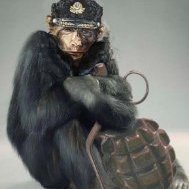As US Companies Disclose Burma Investments, Washington Blacklists General
-
Recently Browsing 0 members
- No registered users viewing this page.
-
Topics
-
-
Popular Contributors
-
-
Latest posts...
-
4,384
LTR Visa is Now available for Long Term Residency
A couple of quick questions on the topic of self insuring for LTR visa. I am 78 years old, spent 6 months in LOS for 20 years using tourist visa, haven't been there for awhile due to covid/family emergencies/operation in home country (USA). I easily qualify for the financial aspect of wealthy pensioner, but after checking a few insurance quotes, I feel like I am just throwing away money because of the exemptions (I have a few). I can easily put up $100K in a bank account, but I cannot obviously back-date it to show a years deposit. I have had an emergency fund in a back of approximately 40K for years. I also have a very large investment portfolio (and I know the BOI doesn't look at that any more). Has anybody out there found any "wiggle room" on the self insurance side, either the timing of the money in a bank, or associated money in bank with large investment. I want the LTR visa for several key reasons: I want to come and go in and out of Thailand whenever I want with little of no administrative hindrance' I don't want to report every 90 days; I don't want to necessarily restrict my time in Thailand to less than 180 days (and wording on LTR visa suggests that it will protect you from global income tax, but only time will tell). There are a couple alternative strategies here, if the bank deposit route is a "hard" one year, I could deposit the money and maybe takae out an METV, being careful with the time in country for the next year and stretcing out my entries so that I keep it valid for close to 90 days. Then after a year applying for the LTR and voila, my money has been in bank for a year. I could also forego the LTR and buy my way in with a Privilege Visa which doesn't include a health insurance rider, can come and go whenever, but still requires 90 day reporting and still has a higher potential of taxing global income if Thailand ever gets their <deleted> together on that aspect. So again, I would be counting days to maintain myself underneath a Thailand resident status. So, any suggestions or comments on my first question about "wiggle room"? Also any ideas on alternative approaches? -
107
Economy Thailand Rejects 0% Tax Deal with US, Cites Risk to Local Farmers
Looking at shipping costs etc, i say your answer is complete <deleted>. -
1
Report Pattaya Beach Drama: Security Guard Injured in Violent Row
Double: Please add this topic: https://thepattayanews.com/2025/07/18/violent-mob-attack-leaves-bolt-driver-injured-in-pattaya/ -
6
THAILAND LIVE Thailand Live Thursday 24 July 2025
Thailand Uses AI to Block Nearly 6 Billion Baht in Online Scams File photo for reference only Thailand’s tech guardians are taking the digital fight to online scammers. In a speedy three-month blitz, a newly enacted cybercrime law, fuelled by artificial intelligence (AI), has thwarted online fraudsters from pocketing nearly 6 billion baht. Full story: https://aseannow.com/topic/1367653-thailand-uses-ai-to-block-nearly-6-billion-baht-in-online-scams/ -
0
Crime Thailand Uses AI to Block Nearly 6 Billion Baht in Online Scams
File photo for reference only Thailand’s tech guardians are taking the digital fight to online scammers. In a speedy three-month blitz, a newly enacted cybercrime law, fuelled by artificial intelligence (AI), has thwarted online fraudsters from pocketing nearly 6 billion baht. Digital Economy and Society Minister Prasert Chantararuangthong announced today that since the royal decree came into effect on April 13, the nation has witnessed a significant decline in technology-based crime. By seamlessly integrating AI with governmental operations, this decree has fortified Thailand's cybercrime defences, Prasert stated. A pivotal development is the transformation of the Anti-Online Scam Operation Centre into the robust Centre for the Prevention and Suppression of Technology Crime (CPSTC). This revamped centre now holds greater authority to scrutinise, intercept, and halt questionable financial endeavours linked to digital scams. Prasert confirmed that the CPSTC has formed a strategic partnership with key agencies, including the Royal Thai Police, the Bank of Thailand, and the Anti-Money Laundering Office, among others. Between April 14 and July 20, the CPSTC aggressively blocked 19,676 illegal gambling website URLs, shut down 14,143 scamming platforms, and suspended 181,989 dubious bank accounts. Furthermore, the CPSTC tackled 88,995 online crime reports, forestalling an immense financial loss of about 5.895 billion baht. This achievement, as reported by The Nation, showcases the critical role of AI in revolutionising crime detection and prevention tactics. Prasert acclaimed the AI tools for their capacity to evaluate fraudulent platforms at an impressive speed, comparable to the workload of 94 human officers. “AI has slashed the time needed to submit court complaints by five days,” he stated, expressing optimism for a projected 70.7% rise in suspended scam URLs before the year’s end, courtesy of AI capabilities. With digital threats continually evolving, Thailand’s AI-driven approach positions the country as a potential exemplar in the region. The effectiveness of this high-tech strategy could inspire similar initiatives to combat online fraud across Southeast Asia. Adapted by ASEAN Now from The Thaiger 2025-07-24 -
300
Blast from the Past - 60's, 70's, 80's,90's Music (2025)
RIP George Jan Kooymans. Who could forget this number?
-
-
Popular in The Pub



.thumb.jpg.3ee24d9400fb02605ea21bc13b1bf901.jpg)






Recommended Posts
Create an account or sign in to comment
You need to be a member in order to leave a comment
Create an account
Sign up for a new account in our community. It's easy!
Register a new accountSign in
Already have an account? Sign in here.
Sign In Now